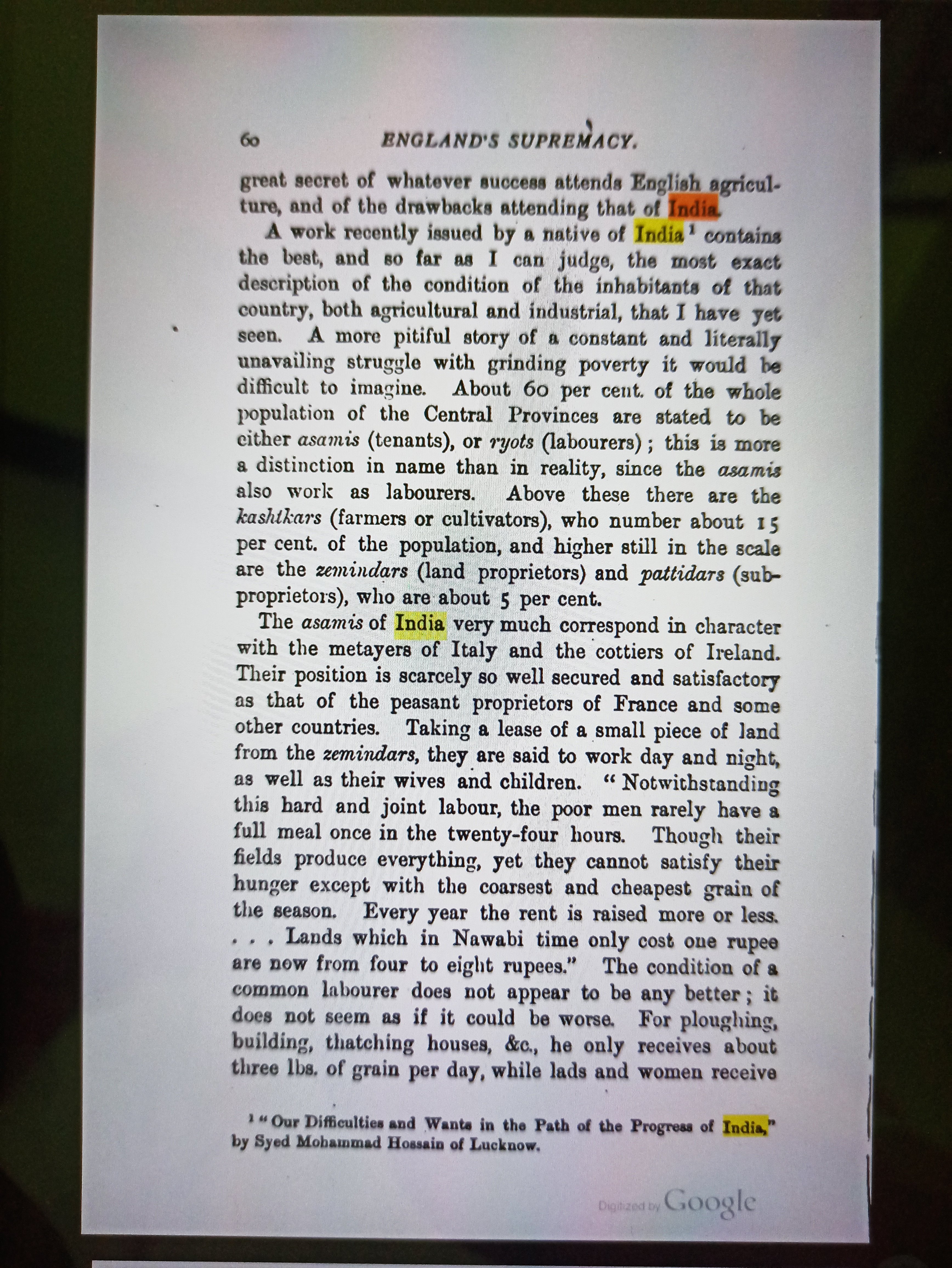James Stephen Jeans (1846-1913), Owner of Coal and Iron newspaper – (Iron and Coal Trades Review), authored this interesting book.
The book provides detailed statistics of the Great Britain (GB)and her colonies…
Also what is amazing is how England thought it is Totally okay to colonize other countries. Until 1700s India was one is the richest countries and when GB left in 1947, India was not rich in any sense – except her past!
This is not just India, in fact, most Third World countries are former colonies.


Among the phenomena that have marked the history of England during the last century two might be expected to stand out with special prominence-the first, that England had contrived, through the most culpable blundering, to lose her American colonies which had developed mean while into the most powerful and prosperous Republic of modern times, whose mission it was to supply the mother country with a great part of her food supplies, and in this, and other ways, to enjoy a degree of consideration and importance unknown to them under British rule; the second, that the seventeen colonies possessed by England prior to 1700 had, since that date, developed into no fewer than fifty-five. (P. 3)
Here comes India!
India differs from the other possessions of Great Britain in this respect, that our rule is maintained there by force of arms. In general it will be found, that, so far as history supplies analogies to this state of affairs, the advantage has been on the side of the "powers that be"-that conquered possessions have been ruled with a special eye to the gain of the conquerors.(p.309)

The note on the railways of India, on how it was viewed as an investment for England, to move forces and natural resources, than for the welfare of India….


The exports of British produce: 1840 vs 1883

To conclude, the author notes:
Man lies there in a state of inactivity, reposing beneath a sultry sun. Too lazy to work at any kind of labour, beyond what is neces sary to mere existence, he thinks that the enjoyments of life are not worth the exertion necessary for their attain ment." Seaman calls attention to the same phenomena when he says, "The want of an industrial education, and habits of indolence and unprovidence, have ever been insuperable obstacles to progress of any kind among nearly all the Indian tribes and nations of America; and the same causes have been one of the principal obstacles to progress among every people living in the torrid zone." It is unnecessary to further multiply authorities on this point. (pp.375-6)
🤔

I will have to read the poem, understand the context, and then the specific meaning of those lines…
And my adventures continue…


1 Comment